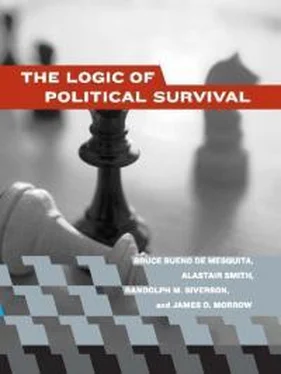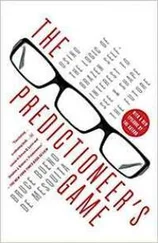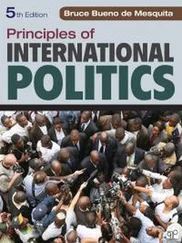Three Puzzles
The alternative to the poor, nasty, brutish life in the state of nature envisioned by Hobbes is a life of peace and prosperity. It is easy to agree with Hobbes that governments that provide for the peace and prosperity of their citizens are successful governments. Indeed, we might naturally expect that leaders who promote peace and prosperity are effective and so deserve long terms in office. Who, after all, does not desire a leader who knows how to provide peace and prosperity? The trouble is, as Machiavelli so aptly observed, that these two enviable qualities are not necessarily conducive to political survival. In fact, just the opposite may be true. Democrats offer their citizens more peace and, by some accounts, more prosperity than autocrats. Yet autocrats last in office about twice as long, on average, as do democrats. 1Why is this so?
This first puzzle motivates part of our work. To seek an answer, we propose to identify political decisions that are incentive compatible with particular institutional constraints. We identify two basic institutions of governance that together expose generic differences between democracy, monarchy, military junta, autocracy, and other forms of government. We use these institutions to explain why poor policy performance is incentive compatible with many forms of nondemocratic governance, while good policy performance is induced by democratic institutions even in the absence of a population that is particularly honest, forthright, or civic-minded. In the process of doing so, our analysis will indicate that the institutionally appropriate choice of policy performance—good or bad—enhances the prospects for political survival (Robinson 1998).
A second puzzle that motivates this book revolves around the selection of governing institutions. People are said to be creatures of habit. Yet, in politics, they often deviate from past practice when the opportunity arises to alter the rules by which they are governed. Consider, for instance, the Bolshevik revolutionaries in Russia who—having defeated the czar and the Kerensky government—launched a social and political experiment of monumental proportions. Their social experiment included the implementation of an entirely new form of command economy based on the labor theory of value. Centuries of evolution in the ideas of property rights were set aside. In one fell swoop almost all property belonged, at least in principle, to everyone. The social and economic changes wrought by the Bolsheviks were accompanied by profound political changes as well. Vladimir Ilyich Lenin promulgated a political system grounded in democratic centralism. At first blush, it does not appear to be that different from the czarist system of concentrated authority. Once a decision was taken, all those close to the seat of power were expected to adhere to that decision; there was no room for dissent. Such a principle required that only a small group could influence the actions of the central authorities, a characteristic that typified most of the reign of Czar Nicholas. Lenin’s principle of democratic centralism left no room for democratic competition of the sort known in the United States at the time. However, while keeping the reigns of real power in the hands of a small group, the Bolsheviks pursued an innovative experiment in the design of their political system, an innovation that made their government different structurally from the Romanov monarchy. They produced one of history’s first universal adult suffrage voting systems when they held an election in December 1917. Of the 41.6 million votes cast, the Bolsheviks received about 25 percent (). The set of people with an ostensible say in choosing the government had been tiny during the Romanov dynasty. Under the Bolshevik system, it was very large indeed.
The experiment with universal suffrage leaves us with a puzzle. Why would any authoritarian state adopt universal adult suffrage as part of its political system? What possible value could leaders, elites, and ordinary citizens derive from rigged elections that everyone recognized as meaningless? Surely the government could gain little, if any, legitimacy from the charade of such elections. Yet there must have been a reason behind decisions to deviate from the standard monarchical approach that relied on noble birth or the military model relying just on the control of guns to decide who has even a nominal say in choosing leaders.
Equally puzzling are institutional innovations adopted by the early English settlers of North America. Just as the Bolsheviks had lived under the repressive regime of the czar, the early English pilgrims had endured and fled the religious oppression of Britain’s monarchy. These pilgrims certainly oppressed those who did not share their religion, but theirs was a government starkly less dictatorial than the monarchy they fled. They built a system in which many had a say about the actions of the government and many had a say in choosing the leaders of that government. Elections were on a fixed and frequent schedule, sometimes with a secret ballot, and open to many. Why did these English settlers, no less so than Lenin and his followers, devise a form of government different from the one they had previously experienced? It has been observed that “those who are conquered always want to imitate the conqueror in his main characteristics” (Hochschild 1999, 304). Certainly, neither Lenin nor the English settlers in North America fit easily into this description. Those who had long subjugated them ruled on the basis of principles different from the principles chosen by the Bolsheviks or the pilgrims, and these two groups chose principles quite different from each other. How are we to square each of these choices about what government institutions to erect when none comport with the previous experience of those making the choice? What leads to the selection and maintenance of democracy in some places, autocracy in others, military juntas in still others, while others choose monarchy or some other form of governance?
A third puzzle arises out of the study of war. At the end of World War II, the victors deposed the leaders in many of the vanquished states. What is more, they toppled the institutions of government and replaced them with others more to their liking. The Americans, with the support of the British and the French, imposed democracy on Germany and Japan, going so far as to write their constitutions for them. Yet at the same time these very countries heartily resisted the creation or promotion of democratic institutions in their own colonial territories and frequently backed and bolstered dictators in Africa, Latin America, and elsewhere. These observations raise questions. When and why do victors in war impose new forms of government on the vanquished and when and why do they sometimes choose to leave the institutions of government as they found them? Does democracy emerge out of monarchy, autocracy, or military junta as a consequence of peaceful domestic transitions? Is democracy or autocracy imposed on the vanquished by foreign victors? Are there sustainable paths from monarchy or autocracy to democracy? Are there, we must alas ask, sustainable paths back to monarchy or autocracy? Finally, can the choice to produce peace and prosperity or war and misery be shown to follow from the same factors that influence preferences for government institutions and the length of time leaders survive in office?
The Essence of the Argument
Political leaders need to hold office in order to accomplish any goal. Every leader answers to some group that retains her in power: her winning coalition . This group controls the essential features that constitute political power in the system. In democracies the winning coalition is the group of voters who elect the leader; in other systems it is the set of people who control enough other instruments of power to keep the leader in office. If the leader loses the loyalty of a sufficient number of members of the winning coalition, a challenger can remove and replace her in office.
Читать дальше












